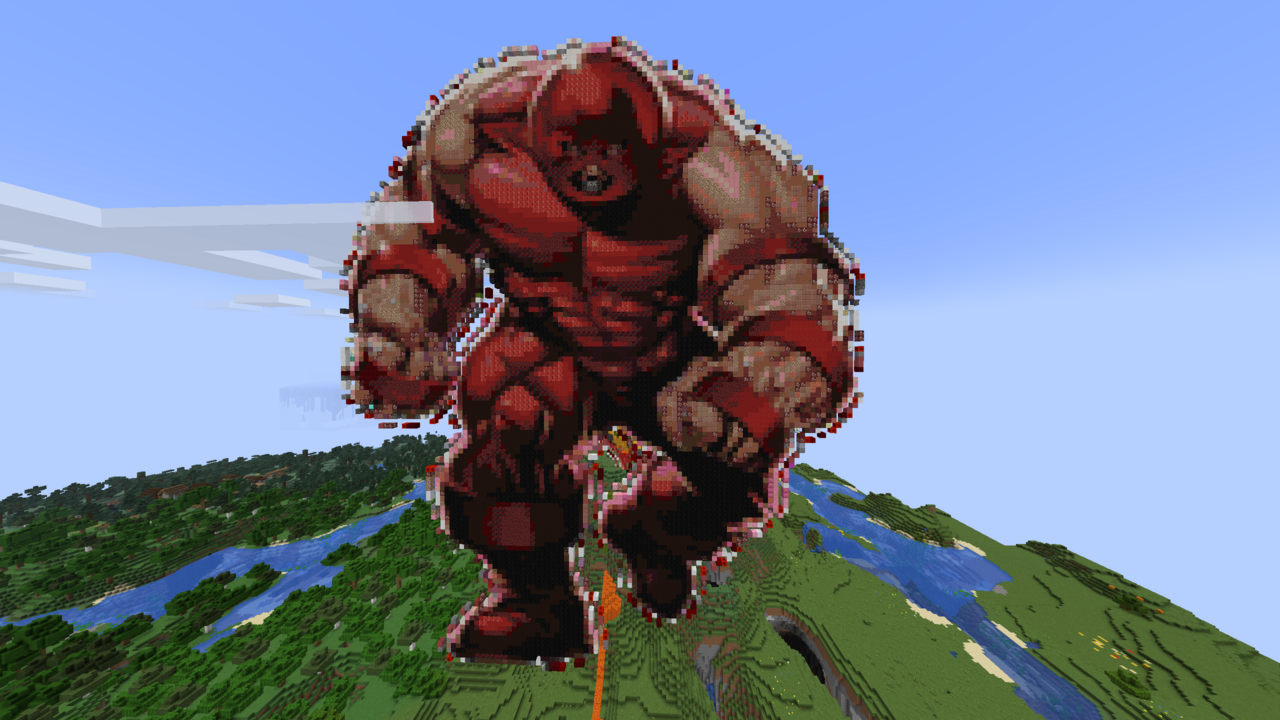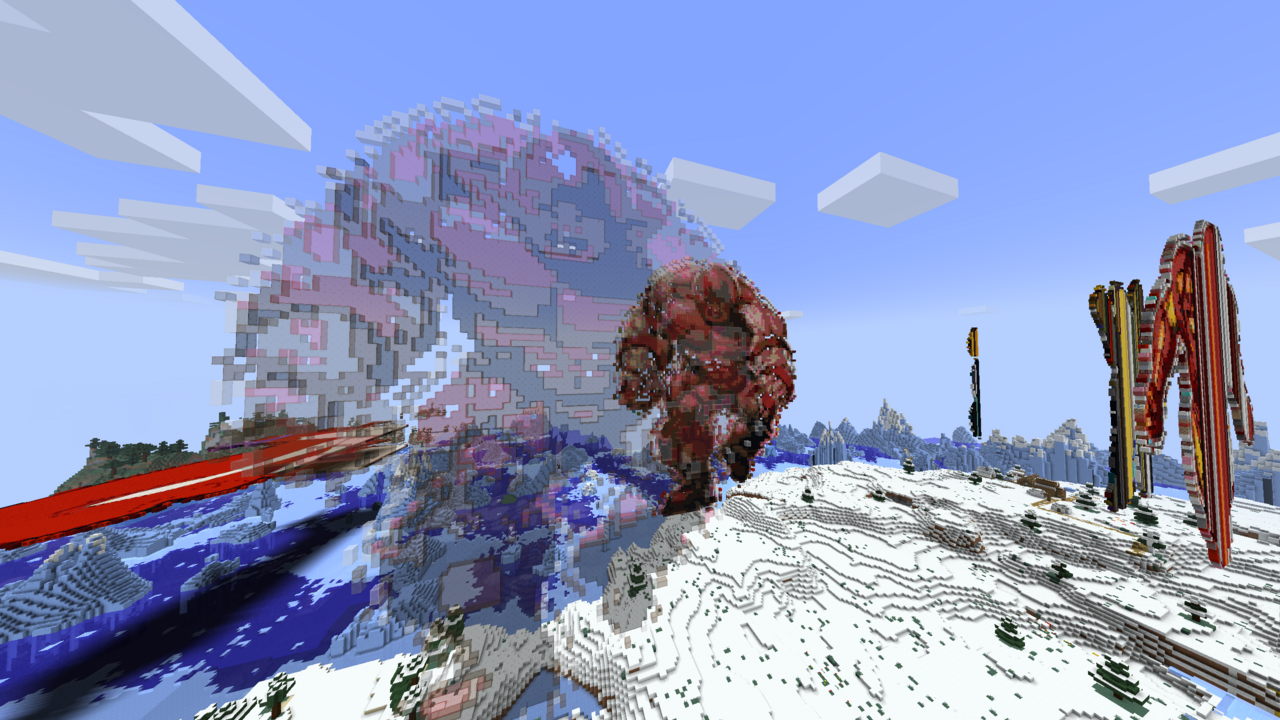This script mkmcfunction.py is used to convert an image (JPG/PNG for example) into an mcfunction that you can use to render the image in your Minecraft world.
Create a datapack. In your minecraft world folder create the directory datapacks/your_data_pack_name/data/io/functions.
In the directory your_data_pack_name create a file pack.mcmeta with these contents,
{
"pack": {
"pack_format": 3,
"description": "Custom datapack"
}
}Now clone this repository and run the mkmcfunction.py script on an image file. It can be a .jpg or .png file, and probably many others. Transparent (alpha channel) pixels will be replaced with minecraft:air. After running this script, it will output an mcfunction file with the same base name as the image. Copy this mcfunction file into your datapaack functions folder.
To configure the script open it and scroll down to the bottom where we check for args.image. Update these variables.
# If you have an image that is 5000x1000, this will scale the image so that neither the width
# nor the height is greater than 100. The result here would be 100x20.
max_dimension = 100
# This is the minimum height any block will be placed.
min_z = 100
# If you want to look down from the sky and see your photo printed on the ground, set this to True
# If you want your print to stand like a cardboard cutout, set this to False
is_horizontal = FalseThen render a .mcfunction file. I usually just put mkmcfunction.py in my datapack functions folder and omit the cp command.
python3 mkmcfunction.py <image.png>
cp image.mcfunction path/to/world/datapacks/your_data_pack_name/data/io/functions/You can also use a custom color block map by passing the --json-file option. There are a few provided.
python3 mkmcfunction.py <image.png> --json-file blockcolormap-glass.jsonIn Minecraft open a terminal and run reload. You can also do this from your server command line.
Since we processed image.png and created image.mcfunction we can run that function in a Minecraft terminal,
/function io:imageBelow is a sample screenshot.
Here's another view using the blockcolormap-glass.json color block map.

